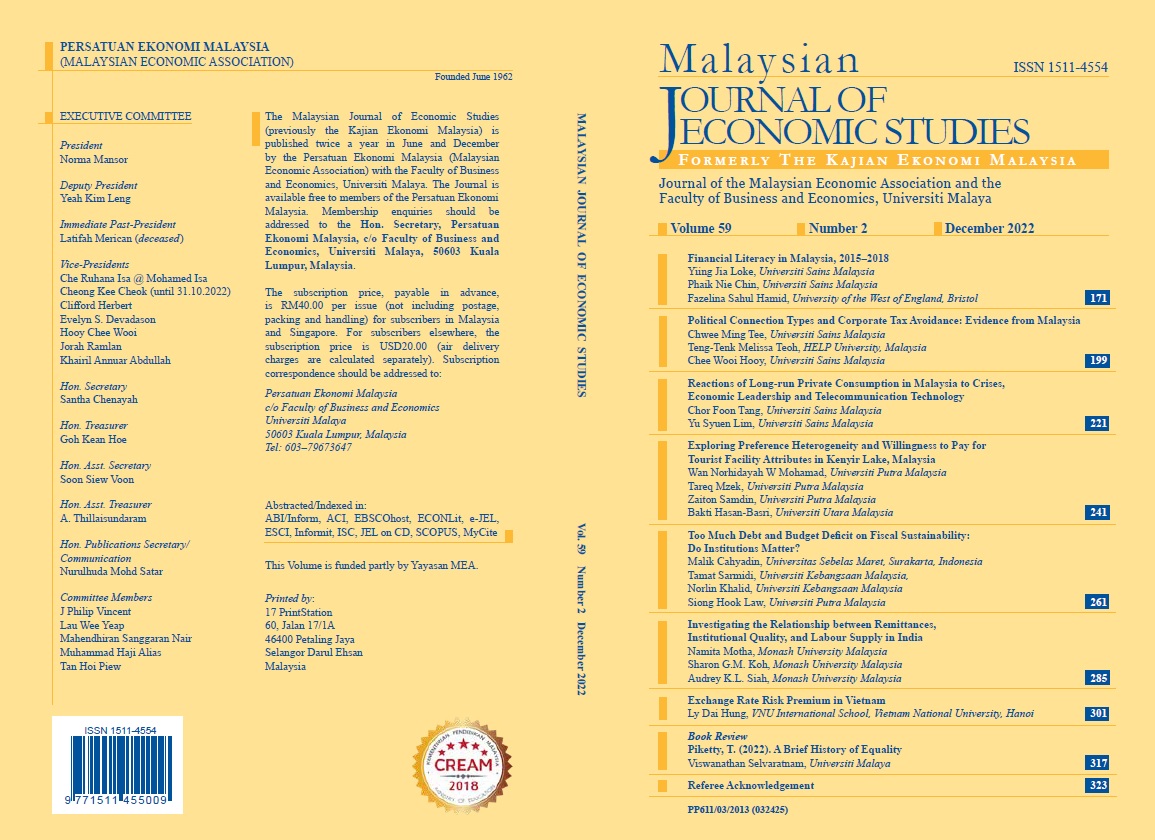Financial Literacy in Malaysia, 2015–2018
DOI:
https://doi.org/10.22452/MJES.vol59no2.1Keywords:
Financial knowledge, financial attitude, financial behaviour, financial cushion, financial vulnerabilityAbstract
This paper provides an overview of the state of financial literacy of Malaysians using data from the OECD (INFE) Financial Literacy Survey conducted in year 2015 and 2018. Besides the three components of financial literacy, namely, financial knowledge, financial attitude and financial behaviour, this paper also analyses the financial vulnerability of individuals. The effects of socio-demographic factors excluding gender are significant in determining financial literacy levels. Generally, Malaysians do not think that they have high financial knowledge, and the objective financial knowledge assessment reflects this as less than 40% of the respondents meet the minimum financial knowledge target score. There are no significant differences in the level of financial knowledge between 2015 and 2018 but financial attitude towards money usage worsened in 2018 compared to 2015. However, in terms of financial behaviour, Malaysians are generally active savers, set long-term financial goals, make considered and informed purchases, and keep a close watch on their personal affairs. Malaysians are financially vulnerable, but they seem more prepared in weathering the storm and having financial cushions for emergencies in 2018 compared to 2015. The findings suggest more effort is needed in educating Malaysians on fundamental financial concepts and ways to enhance their financial cushion.

